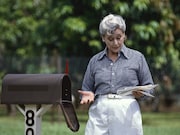$10 incentives used in the study may have been too small to garner a response
MONDAY, April 22, 2019 (HealthDay News) — Financial incentives do not increase response rates among patients mailed at-home colorectal cancer screening tests, according to a study published online March 22 in JAMA Network Open.
Shivan J. Mehta, M.D., of the Perelman School of Medicine at the University of Pennsylvania in Philadelphia, and colleagues conducted a randomized clinical trial of 897 patients to assess the effects of financial incentives on response rates to a mailed colorectal cancer test. All patients were selected from electronic health records because they were overdue for colorectal screening. There were four arms: no incentive (patients received just the fecal immunochemical test [FIT]), unconditional incentive (patients received the FIT and a $10 incentive), conditional incentive (patients received the FIT and were promised a $10 incentive upon returning the completed test), and lottery incentive (patients received the test and were promised entry into a high-payoff lottery if they returned the completed test).
The researchers found that 23.5 percent of patients returned their completed kits within two months of receipt, and 28.9 percent returned their kits within six months. At both two and six months, none of the incentive arms had a statistically better response rate compared with the no-incentive arm.
“Different forms of financial incentives of the same expected value ($10) did not increase fecal immunochemical test completion rates, as the incentive value have been too small or financial incentives may not be effective in this context,” the authors write. “Further efforts are needed to enhance uptake of colorectal cancer screening to make it more scalable and effective.”
Copyright © 2019 HealthDay. All rights reserved.








